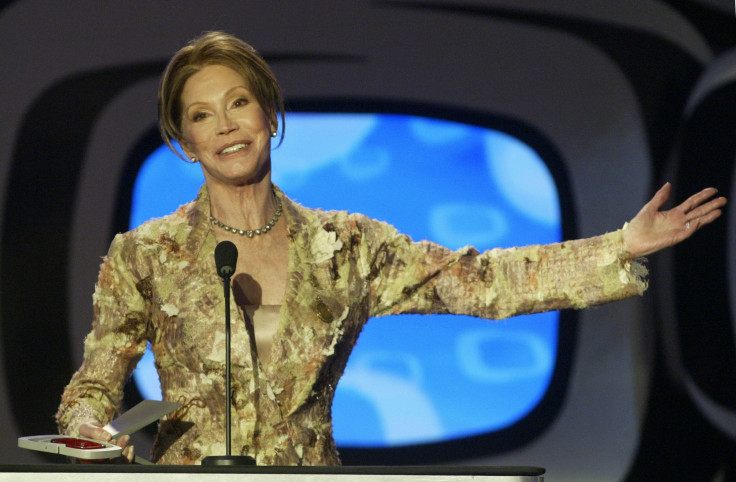The Feminism Of Mary Tyler Moore: Star's 1970s Sitcom Put Single, Working Women On The Pop Culture Map

It could be the plot of any film from 2017: A woman realizes that she gets paid less than the men in her office, so she demands equal pay for equal work.
In actuality, this was the storyline of a 1972 episode from "The Mary Tyler Moore Show," a sitcom that dealt with issues of second-wave feminism, such as equal pay and pre-marital sex, in its episodes. The show aired from 1970 to 1977, and the sitcom followed the main character as she learned to navigate her life during a time when single, career women in their thirties were sometimes thought of as anomalies.
The show’s star, Mary Tyler Moore, died Wednesday at 80 years old. Thanks to the sitcom, she became not only a TV icon but a feminist idol, paving the way for women in comedy long after the show ended.
In 2002, a CNN interviewer asked Moore whether her fictional character was a feminist. “She wasn’t aggressive about it, but she surely was,” she said. “The writers never forgot that. They had her in situations where she had to deal with it.”
"The Mary Tyler Moore Show" was "TV's first truly female-dominated sitcom,"as Jennifer Keishin Armstrong — who published the book “Mary and Lou and Rhoda and Ted: And All the Brilliant Minds Who Made The Mary Tyler Moore Show a Classic” — said in 2013.
The show’s main character, Mary Richards — a modern woman, 30 and single — packs up her bags to move to Minneapolis and become an associate producer on a television show. The show tackled issues such as birth control, difficulties of women in the workplace and homosexuality, as laid out in this New York Times piece.
The sitcom’s legacy even continued into the 21st century. Its influence can be seen today in television shows about women in the workplace attempting to gracefully pull off the challenging balancing act of career and personal life — think “30 Rock,” “Parks and Recreation,” “Jane the Virgin” and “Scandal.”
Unfortunately, Moore herself suffered from multiple health problems toward the end of her life. She was hospitalized Wednesday, and a spokesperson said her state was “grim” before she passed away.
Oh Mary Tyler Moore. You were true inspiration, and power when I didn't know what that was. Thank you. #RIPMaryTylerMoore
— Connie Britton (@conniebritton) January 25, 2017
© Copyright IBTimes 2024. All rights reserved.












